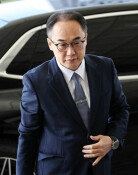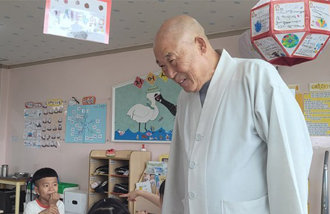Why U.S. defense chief visits Seoul on his first overseas trip?
Why U.S. defense chief visits Seoul on his first overseas trip?
Posted January. 27, 2017 07:02,
Updated January. 27, 2017 07:10
U.S. Secretary of Defense James Mattis will visit South Korea on February 2 and Japan on the following day on his first trip since taking office.
"The trip will underscore the commitment of the United States to our enduring alliances with Japan and the Republic of Korea, and further strengthen U.S.-Japan-Republic of Korea security cooperation," the Pentagon said. The trip is seen as Washington’s message that U.S. President Donald Trump takes seriously the security situation in the Asia-Pacific region including the North Korean missile and nuclear threats and China’s expansion.
Mattis is expected to focus on security-related issues, including the planned deployment of the Terminal High Altitude Area Defense, during a meeting with South Korean Defense Minister Han Min-coo. With China’s strong protest, the two allies’ deployment of the missile defense system as planned will serve as a barometer for the solidity of the Seoul-Washington alliance. During his confirmation hearing, Mattis Mattis said that nothing should be taken off the table, referring to a possible pre-emptive strike on North Korea. Under no circumstance should South Korea be excluded from discussions of ways to deal with the North.
The South Korean military seems to speculate that the thorny issue of increasing Seoul’s financial contribution to keeping U.S. troops in the country is unlikely to be put on the table at the first meeting. If so, the ministry is having an easy-going assessment of the situation. If Mattis conveys Trump’s message claiming South Korea is “free-riding” on security, South Korea should make it clear that Seoul is already contributing nearly 1 trillion won (856,898 U.S. dollars) a year under a bilateral defense cost sharing program and has been purchasing enormous amounts of weapons and military equipment from the United States.
The international community is struggling to figure out how to cope with Trump’s drastic shaking of the international order and putting U.S. interest before international treaties or agreements. Japanese Prime Minister Shinzo Abe said he will strengthen Japan’s defense power under the excuse of Trump’s pressure for increased defense cost contributions. Even U.S. allies, let alone rivals, can rest assured that they would be immune to the whirlwind created by Trump. South Korea should make it clear that it is a key U.S. ally that shares life-and-death interest with the U.S.







